

cordoba is a large city in southern spain. its population is 325000 residents. it was founded about 2000 years ago.
this plan shows the inner parts of cordoba, including the mosque&cathedral and the bridge over the river guadalquivir.
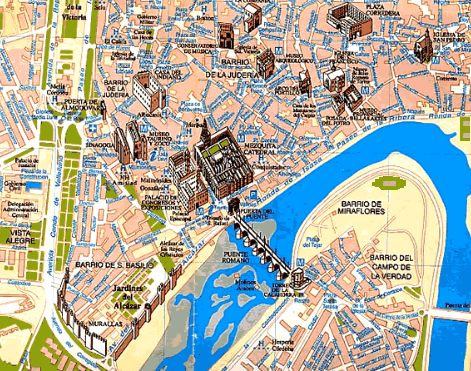
the bridge is 331 m long and was built from the year 10 onwards by the romans.
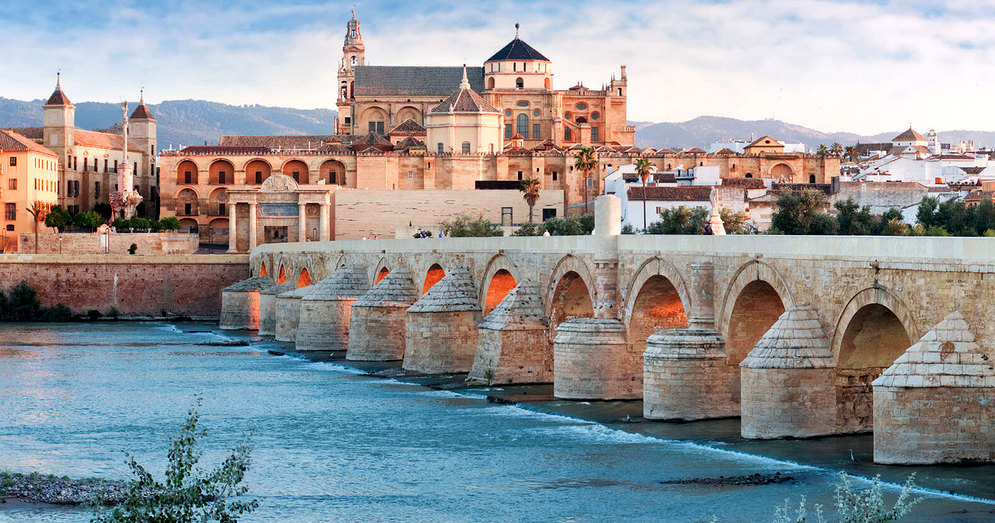
this is the official "coat of arms" of cordoba:
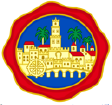
the city of cordoba is really crowded with exciting targets for travellers. the main ones will now be described.
the source of my pictures:
i have visited cordoba long time ago, in 1970 an in 1975. at that time most of my photos were taken in the mode for printing pictures. only a small number of these have been scanned to create digital pictures. consequently i needed to use other sources for some pictures presented below.
these are essential dates:
500 bc scattered settlements of iberian people around river guadalquivir
250 bc carthago gets hold of the area, including the precursor of cordoba
206 bc romans conquer cordoba
152 bc latin colony alongside the iberian settlement
46 bc cordoba established as roman colony, named colonia patricia
300 christianity becomes dominant religion
585 visigothic kingdom in spain, including cordoba
711 muslim army conquers south-eastern spain
716 cordoba made provincial capital within the umayyad empire
1100 city of cordoba then one of the most modern cities in the world
1236 spanish kingdom of castile conquers cordoba, end of muslim rule
1550 period of economic success
1859 cordoba connected to spanish railway network
1936 begin of the franco's dictatorship
1951 cordoba becomes part of spanish democracy
this very large muslim mosque was built from 785 onwards (see graph below). its place was beforehand a visigothic christian church.
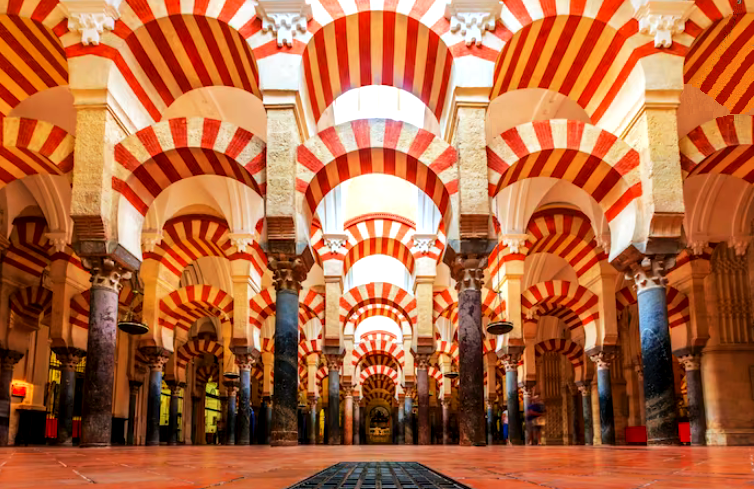

below is the oldest surviving gate to the mosque.
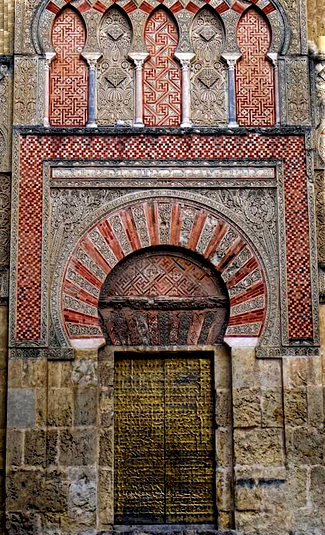

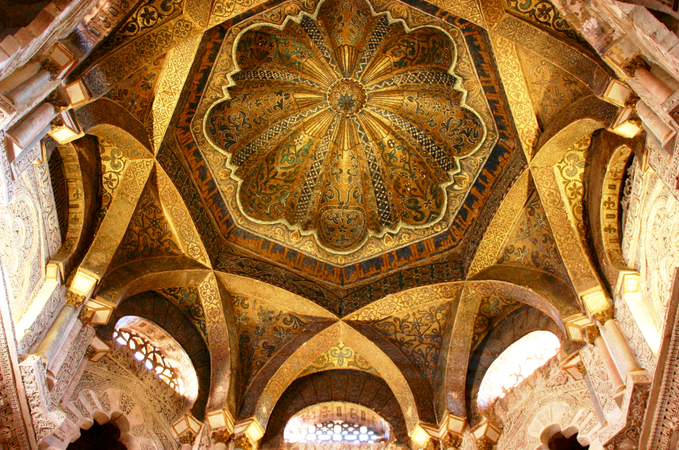
the cordoba mosque is exceptionally impressive and rated as one of the most exciting buildings in spain.
in 1236, after the kingdom of castile conquered cordoba, the mosque was declared to be a catholic cathedral.
despite this conversion, for some time only minor changes were executed, just the creation of an altar and small chapels.
much larger alterations, and finally building a full church within the mosque, happened in the 15th to the 17th century.
the following image shows the finalized cathedral on top of the mosque (seen from south).
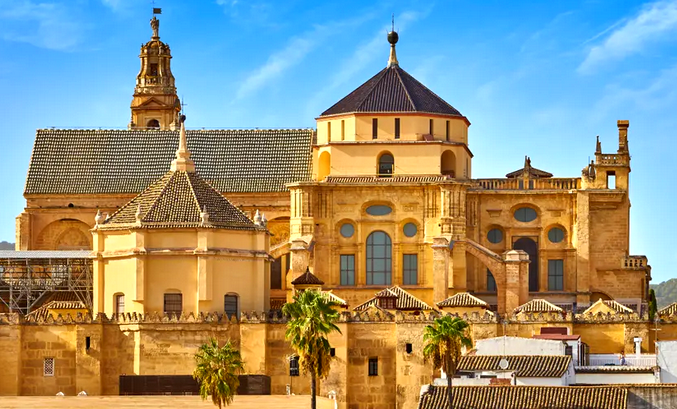
the architecture of the spanish cathedral is not impressive, it's some kind 'ad-hoc' style. but it has to be notified and praised that most of the muslim mosque was maintained, rather than destroyed.
after gaining control of cordoba in 1236, the spanish kingdoms built several large churches, in addition to the cathedral. they are all richly decorated.
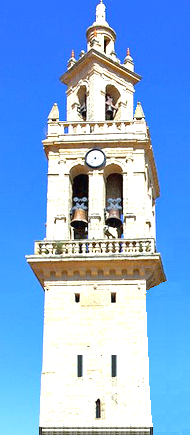
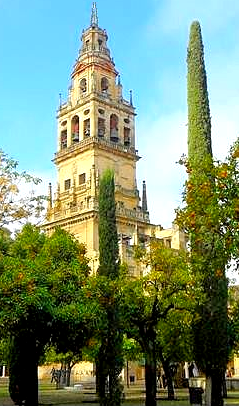
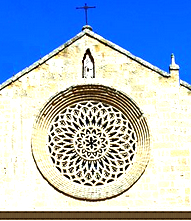

cordoba's center contains historic buildings from roman, visigothic and muslim times, all protected now.

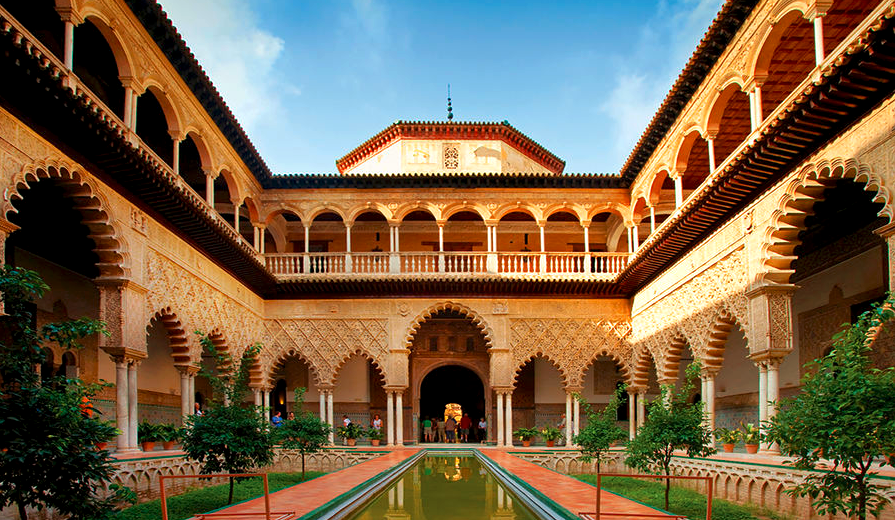
in the oldest quarters streets are narrow, appealing, and full of flowerpots. blue pots are the favoured style.
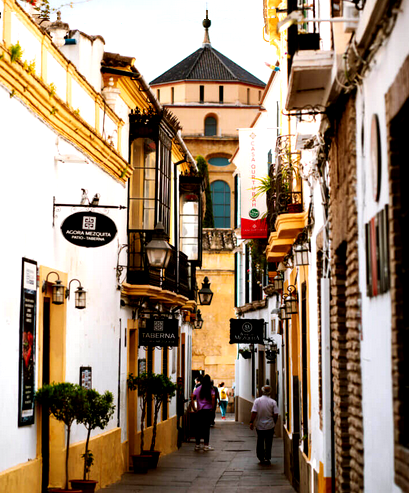
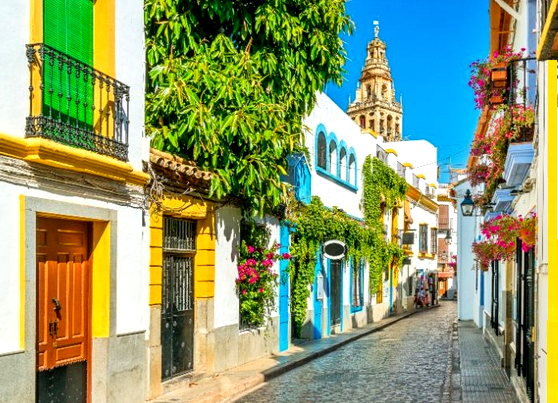
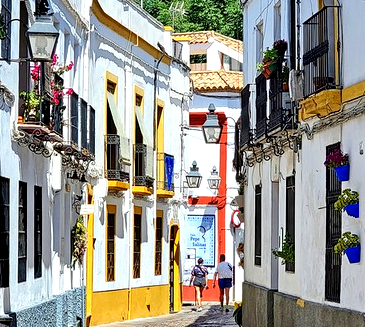
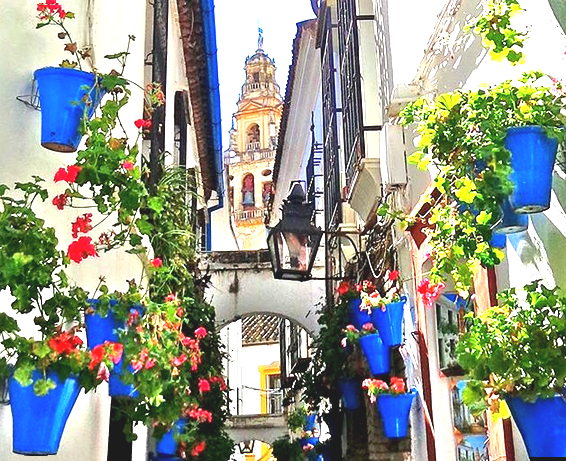

of course cafes and restaurants are everywhere - and those who want to dive into cordoba's immense history can even commute in a horse-drawn cart.

some historic buildings have been converted into stylish accommodations or hotels - attractive for wealthy people.
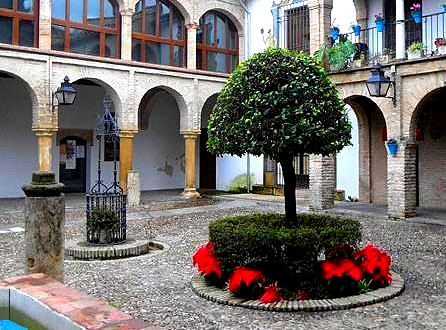
the remains of the waterwheel "albolafia" at the guadalquivir river near the center of cordoba are of a construction in the 9th century (muslim period), created to improve the city's, and especially the royal palace' water supply.
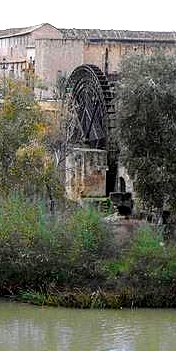
24 km away is the castillo de almodóvar del río, a castle of muslim origin, erected from 760 onwards, on the left bank of the guadalquivir.
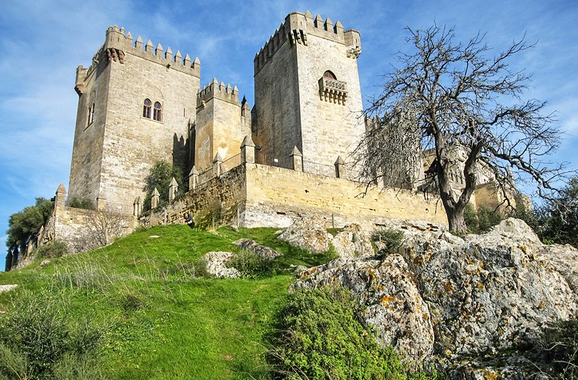
that's it with this brief essay about the spanish city of cordoba.
my resume is plain - cordoba is a great target for every traveller who is interested in history and architecture and art and culture and vivid local life!

* * * adios * * *
